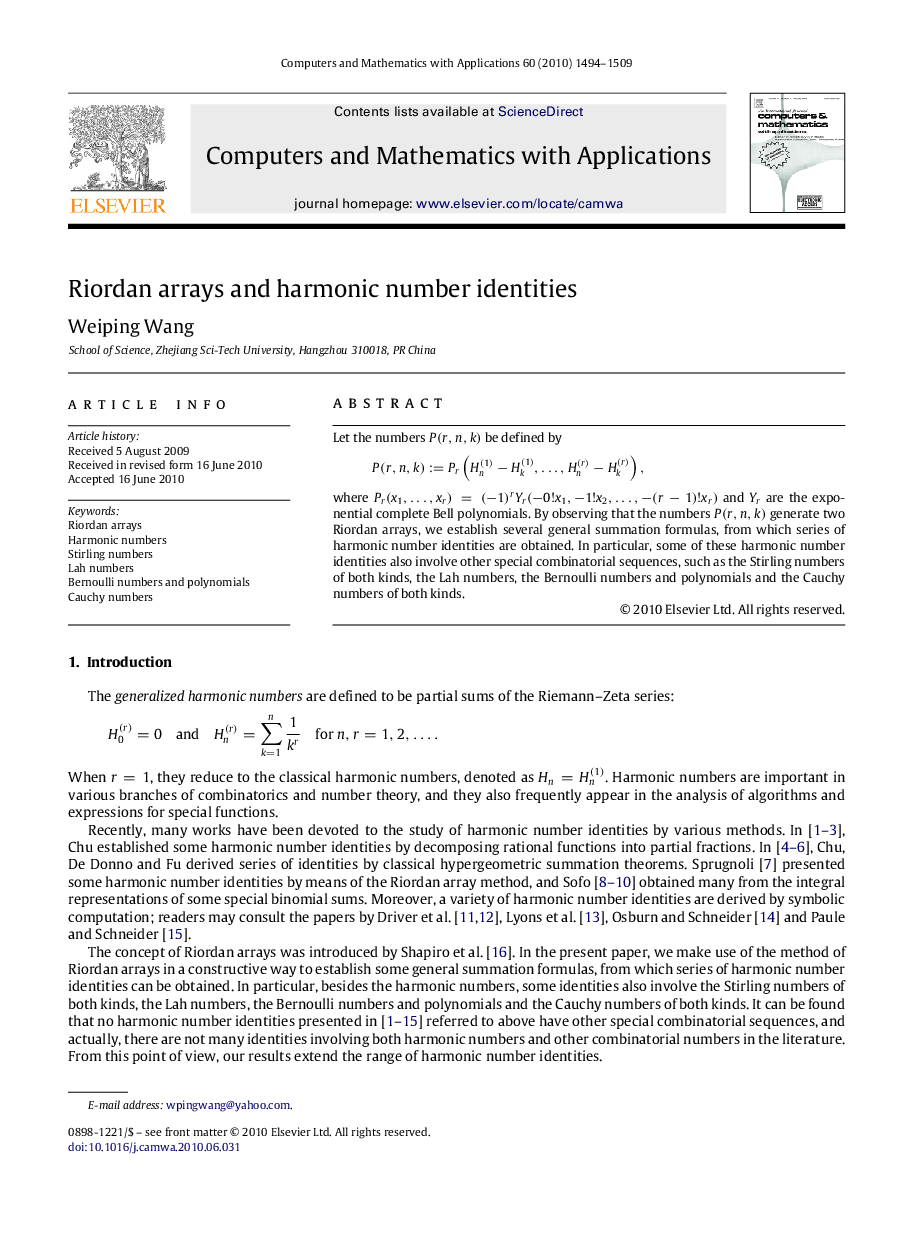| Article ID | Journal | Published Year | Pages | File Type |
|---|---|---|---|---|
| 470851 | Computers & Mathematics with Applications | 2010 | 16 Pages |
Abstract
Let the numbers P(r,n,k)P(r,n,k) be defined by P(r,n,k):=Pr(Hn(1)−Hk(1),…,Hn(r)−Hk(r)), where Pr(x1,…,xr)=(−1)rYr(−0!x1,−1!x2,…,−(r−1)!xr)Pr(x1,…,xr)=(−1)rYr(−0!x1,−1!x2,…,−(r−1)!xr) and YrYr are the exponential complete Bell polynomials. By observing that the numbers P(r,n,k)P(r,n,k) generate two Riordan arrays, we establish several general summation formulas, from which series of harmonic number identities are obtained. In particular, some of these harmonic number identities also involve other special combinatorial sequences, such as the Stirling numbers of both kinds, the Lah numbers, the Bernoulli numbers and polynomials and the Cauchy numbers of both kinds.
Keywords
Related Topics
Physical Sciences and Engineering
Computer Science
Computer Science (General)
Authors
Weiping Wang,
